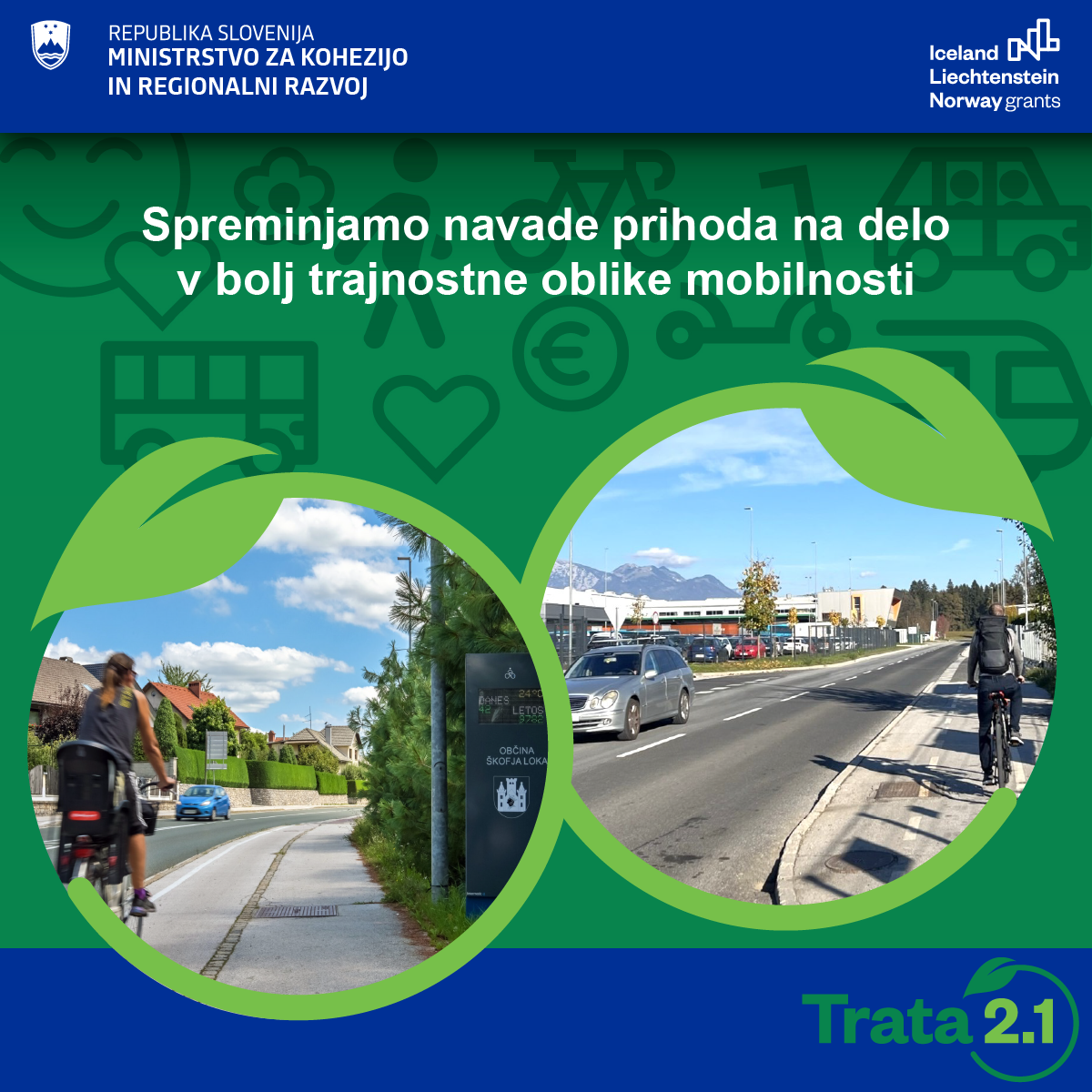
20 March 2023 – Every day over 3,500 people commute to Trata industrial zone. It is located just a few kilometres from the historical centre of Škofja Loka, a beautiful alpine town in central Slovenia. Around 94% of employees working in this industrial zone use their cars to travel to work daily. Thanks to the EEA Grants-backed project Trata 2.1, that is about to change.
An industrial zone fit for the 21st century
Slovenia’s industrial zones accommodate various businesses, including manufacturing, processing, assembly, and distribution. The presence of these businesses is critical for the Slovenian economy. And while many companies are taking steps towards being environmentally conscious, the industrial zones that host them, designed in the 60s and 70s, have not been built with sustainability or clean mobility in mind.
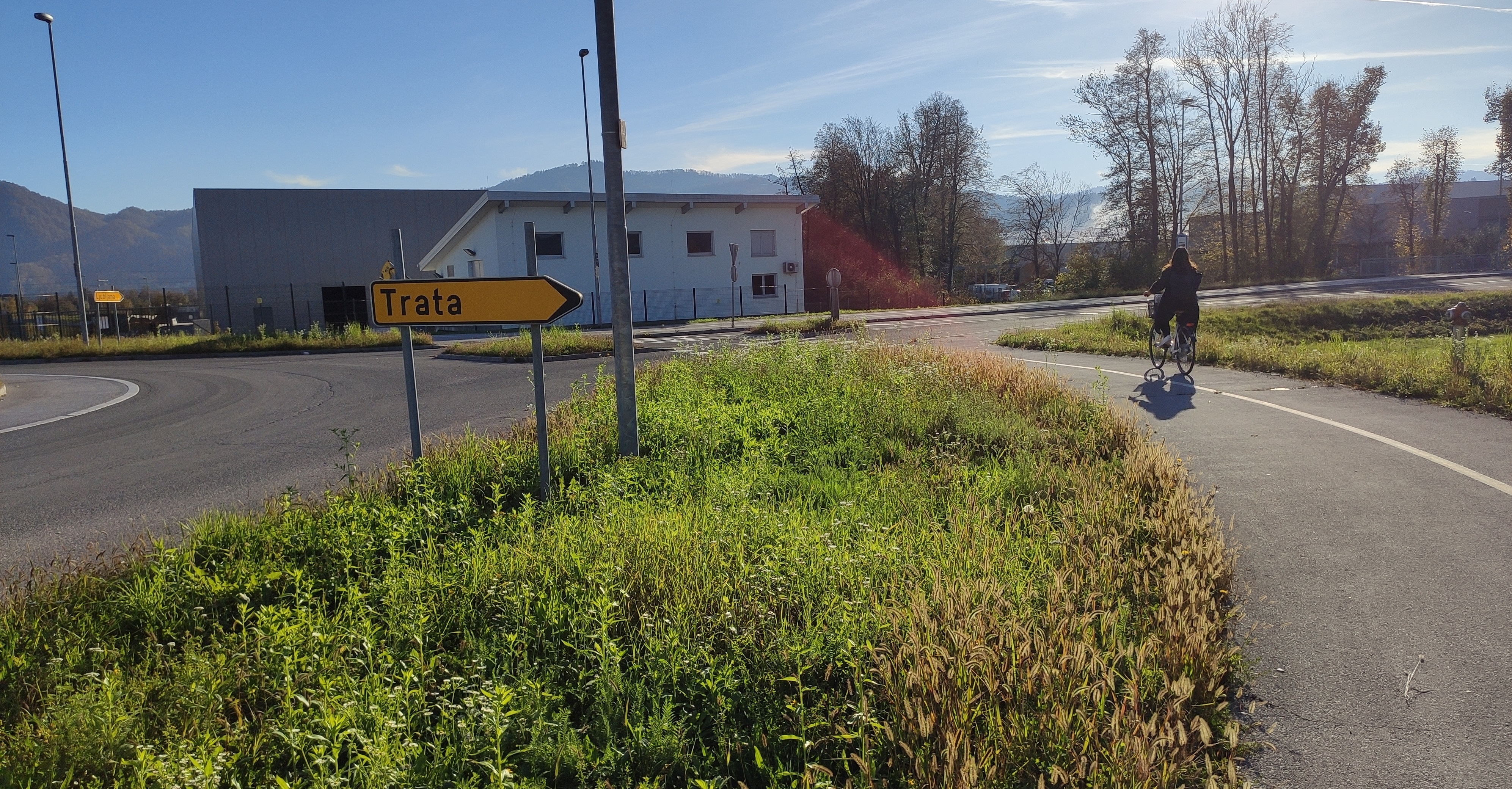
That is where the project Trata, an industrial zone for the 21st century – TRATA 2.1, comes into play. An exemplary public-private cross-border partnership is building and piloting a blueprint for companies to enable the change of their employees’ mobility habits.
“The idea has been ‘brewing’ in the head of Gašper Kleč, director of the Development agency Sora for some time. He saw a big problem in the fact that nobody is addressing the generators of mobility when talking about and planning sustainable mobility. This topic is usually dealt with on the local, regional or national level, but not on the level of businesses, although they are the biggest daily generators of mobility”, says Katarina Sladoljev, project manager at the Development agency Sora.
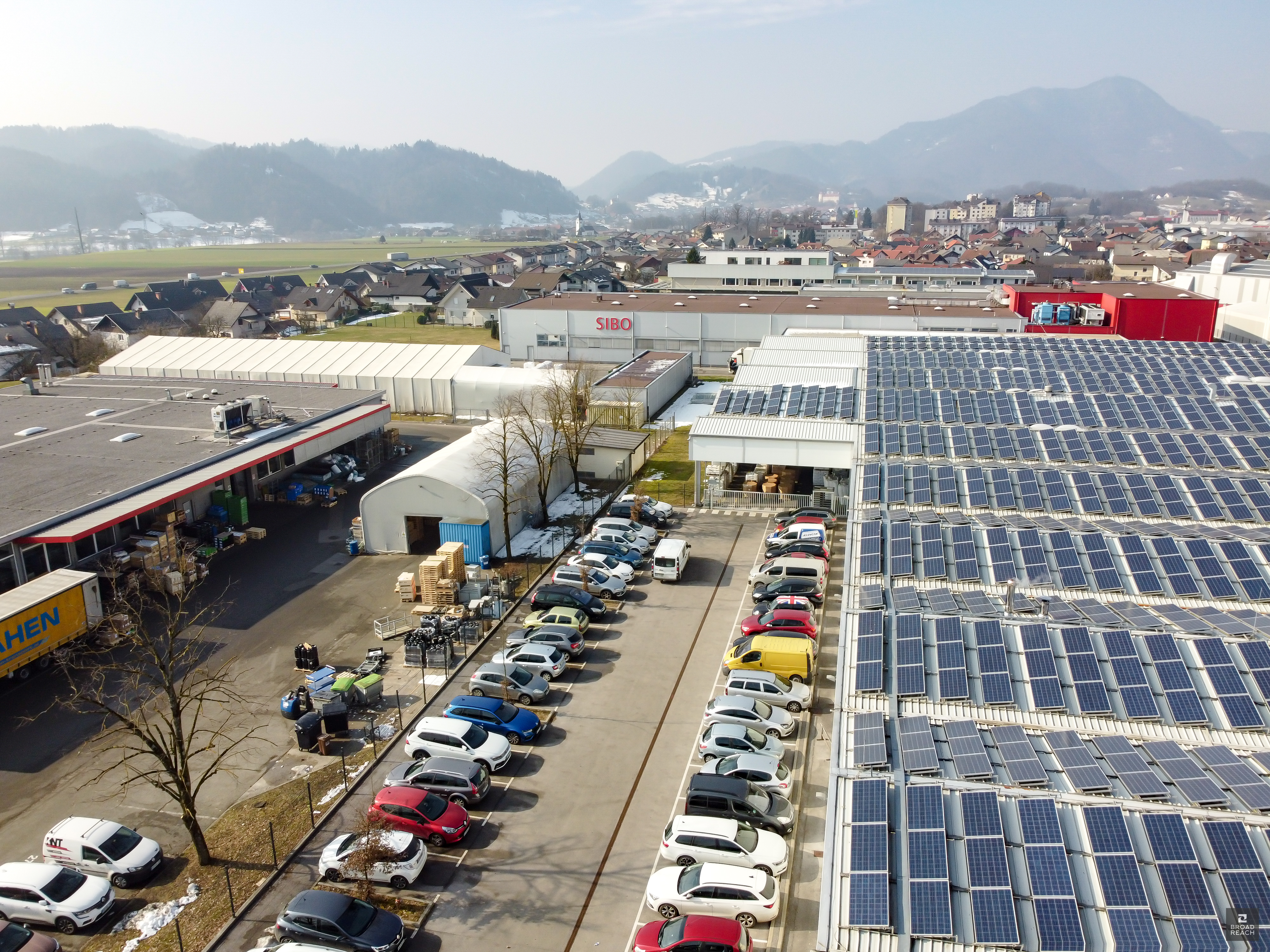
The partnership brings together eight organisations – among them a municipality, development agency, NGOs, and private companies – to combine their knowledge and expertise in addressing this shared challenge.
Common solutions for a shared challenge
The project’s overarching objective is to encourage employees of the three companies taking part in the project to change their mobility habits for more sustainable ones.
We want to promote change in a motivating, positive and obtainable way. We are encouraging the employees to choose sustainable means of transportation for their daily commutes, either active mobility, such as walking and biking if they live up to 5 km away from their work, or using public transport – buses and trains when they live further than that. At the same time, we know that a lot of people who come to this industrial zone live in rural areas that are not very well connected with public transportation, so we also encourage car sharing. We want to make the change as easy and painless as possible.Katarina Sladoljev, project manager at the Development agency Sora
The project is split into several parts, each of them serving a specific purpose that will help achieve their ultimate goal – increase the number of commuters choosing cleaner modes of transport by 4%.
During the first phase of the project, IPoP – Institute for Spatial Policies – one of the project partners, carried out a survey of mobility habits among the employees working in the Industrial zone Trata. The survey revealed that nearly 76% of employees use unsustainable means to travel to work, meaning they commute to work alone in their car. In total, the survey received over 600 responses, which will be used to define the specific needs of the commuters and, later on, measure the change in their habits.
In addition to the survey, IPoP organised focus groups in each of the companies. Their goal was to understand the habits of employees and identify informal ambassadors of clean mobility who would later be appointed as mobility managers in their respective companies.
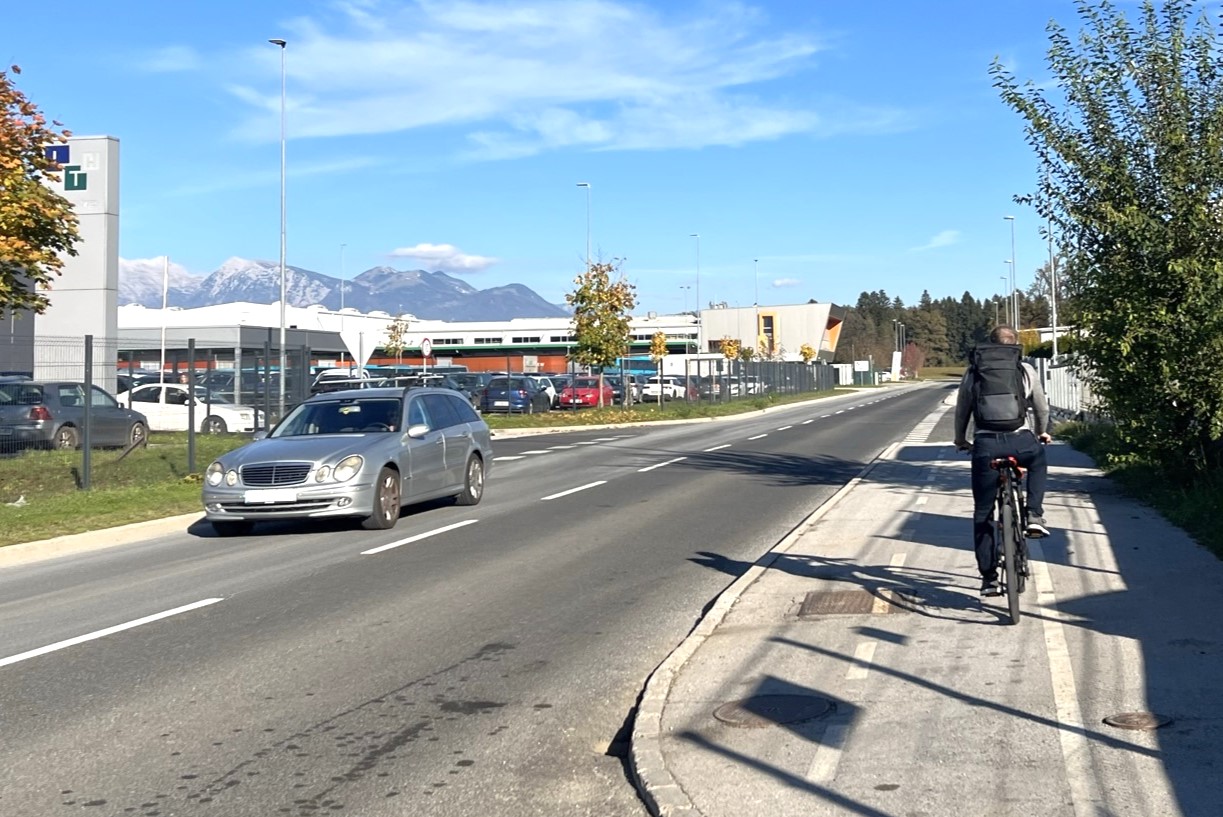
The second part of the project is the most tangible. In this stage, the project partners are making sure the right infrastructure is in place. It includes building unfinished parts of the cycling path by the project partner Municipality of Škofja Loka. Meanwhile, each of the companies in the project will purchase several e-bikes to be used by their employees and build appropriate bike storage.
At the same time, project partners CIPRA Slovenia and CIPRA International from Liechtenstein are collecting the best international practices for promoting sustainable mobility in companies.
“We at CIPRA International have years of experience in the cross-border area of Germany, Austria, Switzerland and Liechtenstein when it comes to sustainable commuter mobility and supporting the modal shift. The project offers us the unique chance to discuss our measures and activities with experts from other Alpine countries and get new insights.” Jakob Dietachmair, Deputy Director at CIPRA International
“Our international partners are collecting best practices from companies who already have mobility plans in their vision or their business plan, and are implementing them. These practices have to come from abroad because there aren’t many of them in Slovenia yet. We need to learn what are the possibilities, decide what is relevant and applicable to Slovenia, and then propose that to the three companies in the partnership. We are looking for practical solutions. For example, the companies will purchase 45 bikes between the 3 of them. But how will we distribute the bikes among, for example,450 employees in one of the companies? What kind of rental system should be put in place? These are the kinds of questions that we need to have answered” says Sladoljev.
Identifying policy holes
Such a bottom-up approach to clean mobility is not always easy. In this case, project partners identified an issue that could hurt the project. According to them, an oversight in the new tax policy in Slovenia will discourage employees from changing to clean mobility as it favours only electric cars, but not electric bikes.
“In Slovenia, if you get to use a company car, it is taxed as a work benefit. Last year an addendum to the law was accepted that lifts the taxing of the benefit in cases where companies provide electric cars. However, that is not the case for electric (or regular) bikes provided by the company,” explains Sladoljev.
To remedy this, CIPRA Slovenia is working with the Coalition for sustainable transport policies and national institutions to update the addendum and make sure that any employee in Slovenia, who chooses a sustainable vehicle, will enjoy the same tax benefits.
Aiming for measured impact
All the research findings, together with good practices proposals will be put together into so-called ‘Mobility plans’. Each company taking part in the project will get a customised mobility plan that will be implemented with the help of appointed mobility managers.
The pilot project is set to run until the end of April 2024. But as important as all of the steps taken in the implementation, measurement of the impact will be critical for the success of the project.
“Our objective is to change the mobility habits of 4% of people working in the three companies that are part of this project. We will measure this in several ways. IPoP will carry out a follow-up survey, similar to the one at the beginning of the project, to see how the answers regarding their mobility habits have changed. But we all know that surveys are not always reliable – there is a difference between what people say they will do versus what they do. That is why they will at the same time analyse the parking lot video surveillance footage to see how the actual situation is changing, and physically count over-time increase in car sharing and such. This way, we will be sure of the project’s real impact,” says Sladoljev.
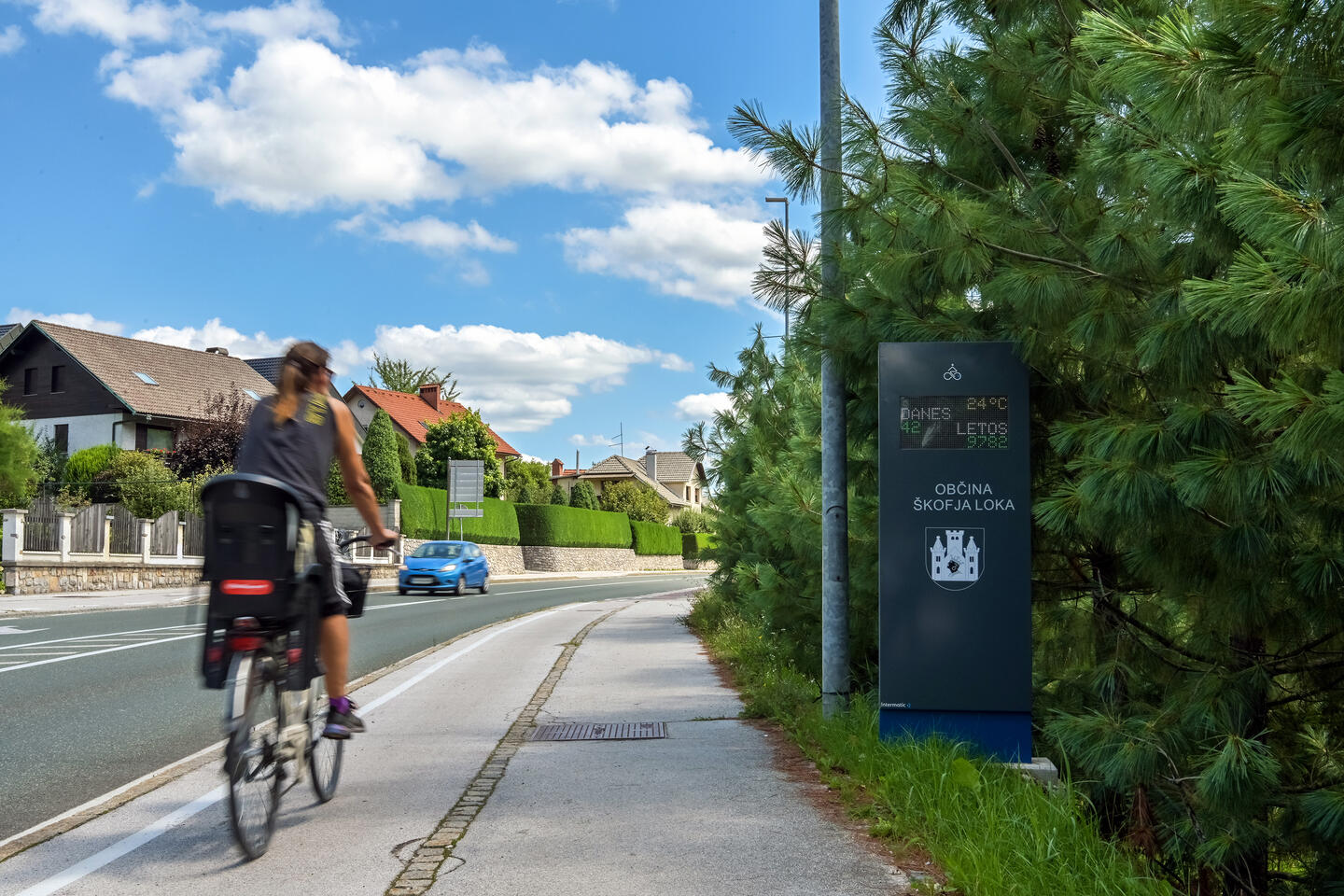
Exemplary cross-border partnership
A diverse partnership between the public and private sectors, a development agency and various experts in the field of sustainable mobility from different countries, and the desire to change the existing situation can make Škofja Loka one of the best Slovenian success stories in the field of sustainable mobility. And since climate change is not a localised problem, it provides one more solution that can be scaled and replicated in Slovenia and other countries.
“The Alps are particularly affected by climate change. Temperatures in this region increased at more than twice the global average rate in the last century. The challenges we see due to climate change are similar in all Alpine countries and do not stop at political borders. Only a well-coordinated approach (for example within the framework of the Alpine Conventions Climate Action Plan 2.0) can guarantee a good life in the Alps for all. Finally, not one alone can stop the climate crisis, everyone’s help is needed.” Jakob Dietachmair, Deputy Director at CIPRA International
“If this project is successful, it will prove that this approach works and that the companies should be investing in similar models. And if we do it in a span of a year and a half, others can probably do it even faster because we will be able to provide them with a replicable model,” says Sladoljev.
Author: Kristina Jasaityte, Financial Mechanism Office
More information about the Trata 2.1 project is also available on the website of the financial mechanisms and on the project website. You can also follow the project on Instagram. You are invited to watch the presentation video (in Slovenian).